All Passcode Voices
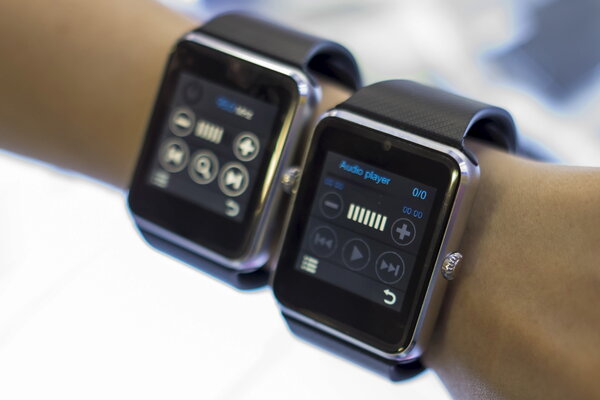 Opinion: Beware that fake smartwatch. It's a malware magnet
Opinion: Beware that fake smartwatch. It's a malware magnetWith the rise of Internet-connected wearables such as the Fitbit and Apple Watch, fakes are proliferating, too. They are cheap but can also carry malicious software designed to steal personal information and infect other machines.
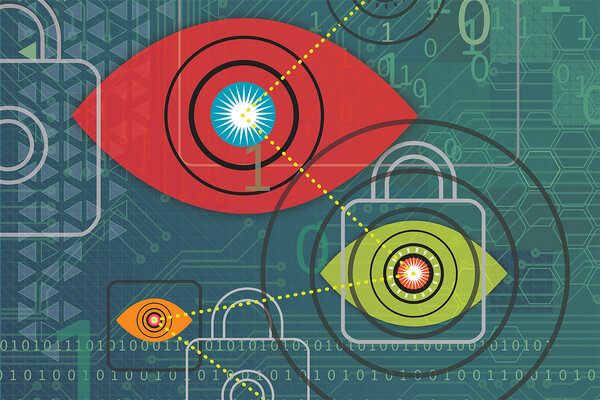 Opinion: After OPM hack, 3 steps to improve government cybersecurity
Opinion: After OPM hack, 3 steps to improve government cybersecurityThe Office of Personnel Management breach returns the spotlight to the insecurity of federal networks, which can be strengthened if Washington starts acting a bit more like Silicon Valley.
 Opinion: Why we need a robust national standard for data breach notification
Opinion: Why we need a robust national standard for data breach notificationAs President Obama has rightly suggested, Congress should pass a strong data breach notification law to better safeguard consumers' information exposed by hackers.
 Opinion: What cybersecurity can learn from citizen science
Opinion: What cybersecurity can learn from citizen scienceIn an era where citizen science projects such as StarDust@Home are becoming more common and more effective, cybersecurity researchers can leverage this movement to get better insight into the threat landscape.
 Opinion: How USA Freedom is a victory for American spy agencies
Opinion: How USA Freedom is a victory for American spy agenciesUSA Freedom is an important first step in reforming government surveillance powers put in place after 9/11, but it does not curtail some of the National Security Agency's most controversial activities.
 Inside the casino, the house is always watching
Inside the casino, the house is always watchingCultural anthropologist Natasha Dow Schüll explains how casinos use surveillance technology and algorithms to monitor and manipulate players and convince them to wager more.
 Opinion: Why Congress should not pass USA Freedom
Opinion: Why Congress should not pass USA FreedomWhile it has been hailed as a surveillance reform bill, the USA Freedom Act would immediately ramp back up the collection of billions and billions of records about our everyday actions.
 Opinion: Why the aviation industry needs more hackers
Opinion: Why the aviation industry needs more hackersClaims about a researcher infiltrating a plane's control systems have put a spotlight on aviation security. It's time for the industry to be more open about potential risks and let hackers test the strength of their networks.
 Opinion: It's time to upend the cybersecurity business
Opinion: It's time to upend the cybersecurity businessWe’ve embraced data analytics. We build and deploy a cascade of security tools. Why isn’t the security industry winning? It’s time for security strategists to sift, read, and respond to threat data differently.
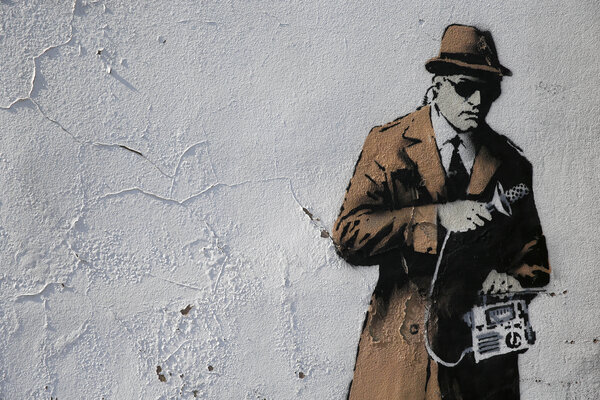 Opinion: An ex-NSA chief and ACLU adviser can agree on surveillance reform. Why can't Congress?
Opinion: An ex-NSA chief and ACLU adviser can agree on surveillance reform. Why can't Congress?Former National Security Agency Director Keith Alexander and law professor Geoffrey Stone say it's time for Congress to put politics aside and act quickly to reform surveillance laws in order to protect American privacy and maintain an intelligence edge.
- Opinion: What Congress gets wrong about NSA surveillance practices
As Congress battles over surveillance reform, it's important to remember that the Patriot Act's controversial Section 215, which justified National Security Agency collection of phone records, is also an essential investigative tool for the US intelligence community.
 Opinion: The Pentagon's troubling new battle against Internet anonymity
Opinion: The Pentagon's troubling new battle against Internet anonymityWith its updated cybersecurity strategy, the Department of Defense redoubles a campaign against Web anonymity. But without anonymity, the expression and political activity that it protects may vanish, too.
- Why I make my kids read privacy policies
It's like teaching them to look both ways before crossing the street. Reading privacy policies for apps is about learning basic safety tips in the Internet Age and gives parents an opportunity to teach kids about responsibility and self awareness on the Web.
- Is student privacy erased as classrooms turn digital?
Privacy researcher Elana Zeide says schools need more transparency about how student data is used by educational publishers and software companies.
 Opinion: The Pentagon's risky offensive cyberstrategy
Opinion: The Pentagon's risky offensive cyberstrategyWhile the Pentagon's new cybersecurity strategy puts more weight on striking back against criminal or nation-state hackers, a more effective way to deter attacks may be through diplomacy, law enforcement, and sanctions.
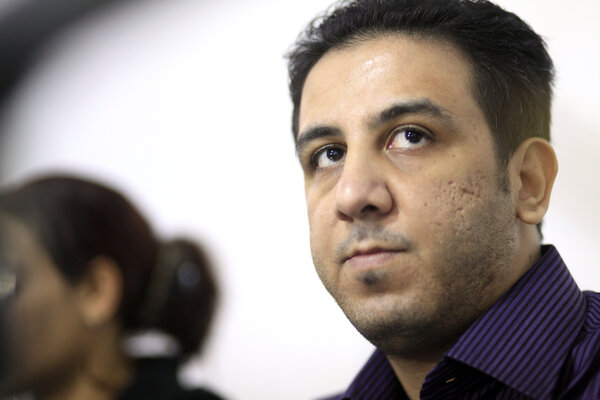 Opinion: Egypt’s cybercrime bill poses threat to freedom of expression
Opinion: Egypt’s cybercrime bill poses threat to freedom of expressionThe draft law gives Egyptian authorities more power to control the Internet under the pretext of national security, leading the way to censorship of online news, cultural and political sites, and controversial views on the Web.
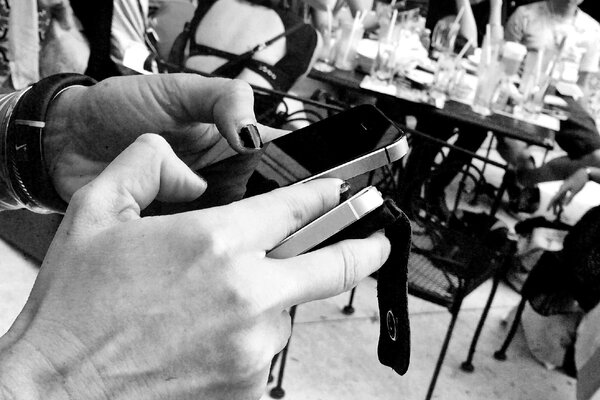 Opinion: If predictive algorithms craft the best e-mails, we're all in big trouble
Opinion: If predictive algorithms craft the best e-mails, we're all in big troubleThe new Crystal app creates profiles 'for every person with an online presence' so its users can craft the ideal e-mail for every recipient. That's not only troubling for privacy, but also threatens to strip individuality out of our digital dialogue.
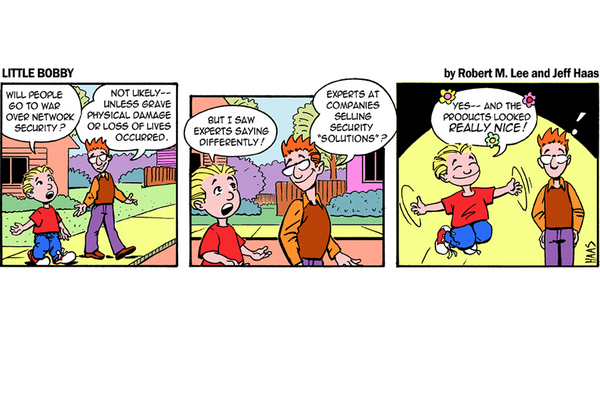 Opinion: Security firm’s Iran report mostly hype
Opinion: Security firm’s Iran report mostly hypeA new report from the security firm Norse that claims growing Iranian cyberattacks on critical infrastructure relies on questionable data. It's the latest in a string of cybersecurity vendor reports that grab headlines but erode trust in the industry.
 Opinion: Threat intelligence is the judo move needed to take down hackers
Opinion: Threat intelligence is the judo move needed to take down hackersAdvanced techniques for quickly tracking and analyzing the behavior and tactics of criminal hackers gives companies the tools to defend against emerging cyberthreats.
 Why you have the right to obscurity
Why you have the right to obscurityFederal Trade Commissioner Julie Brill says that obscurity means that personal information isn’t readily available to just anyone. In our age of aggressive data collection, she says safeguarding obscurity should be a key component of consumer protections.




















